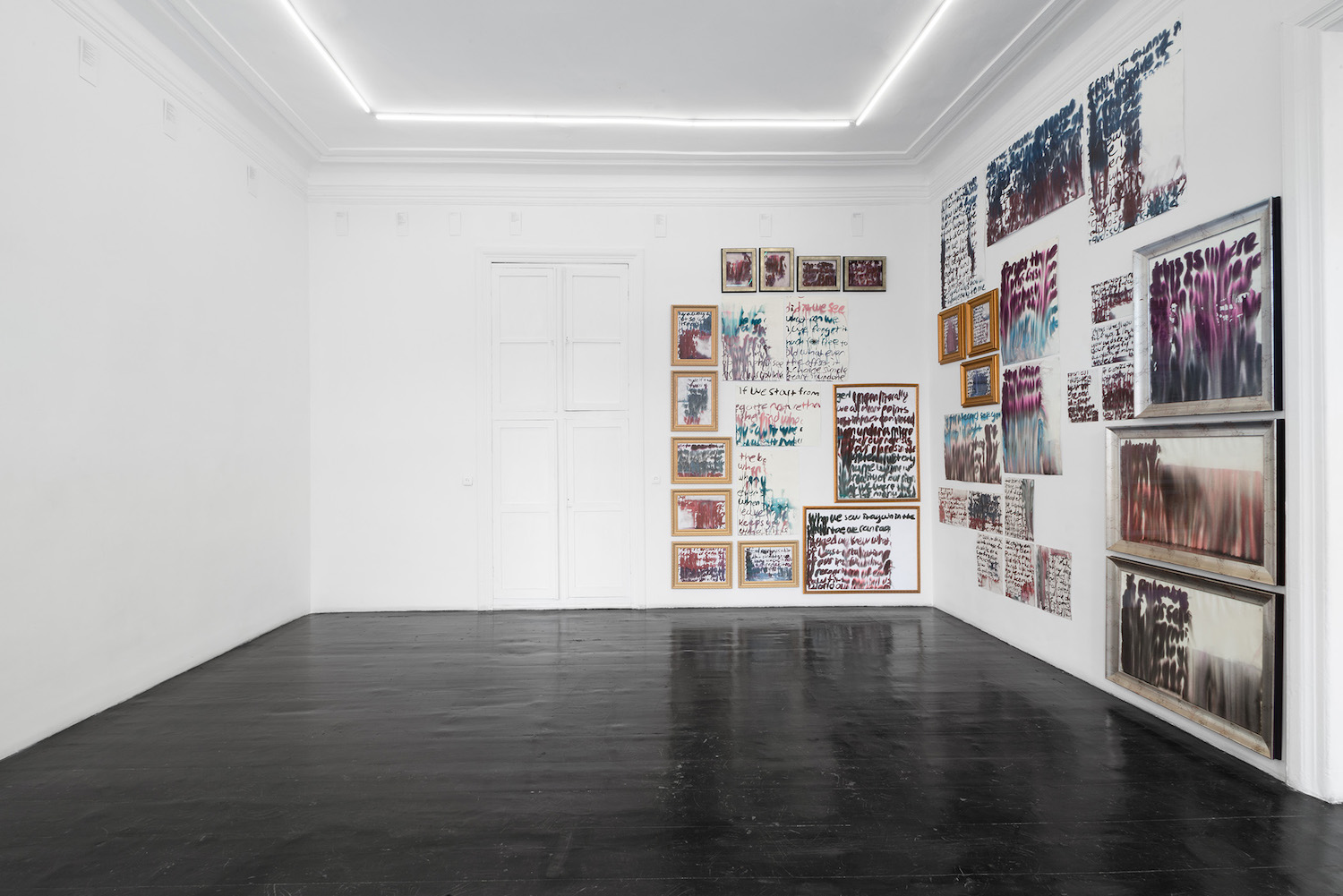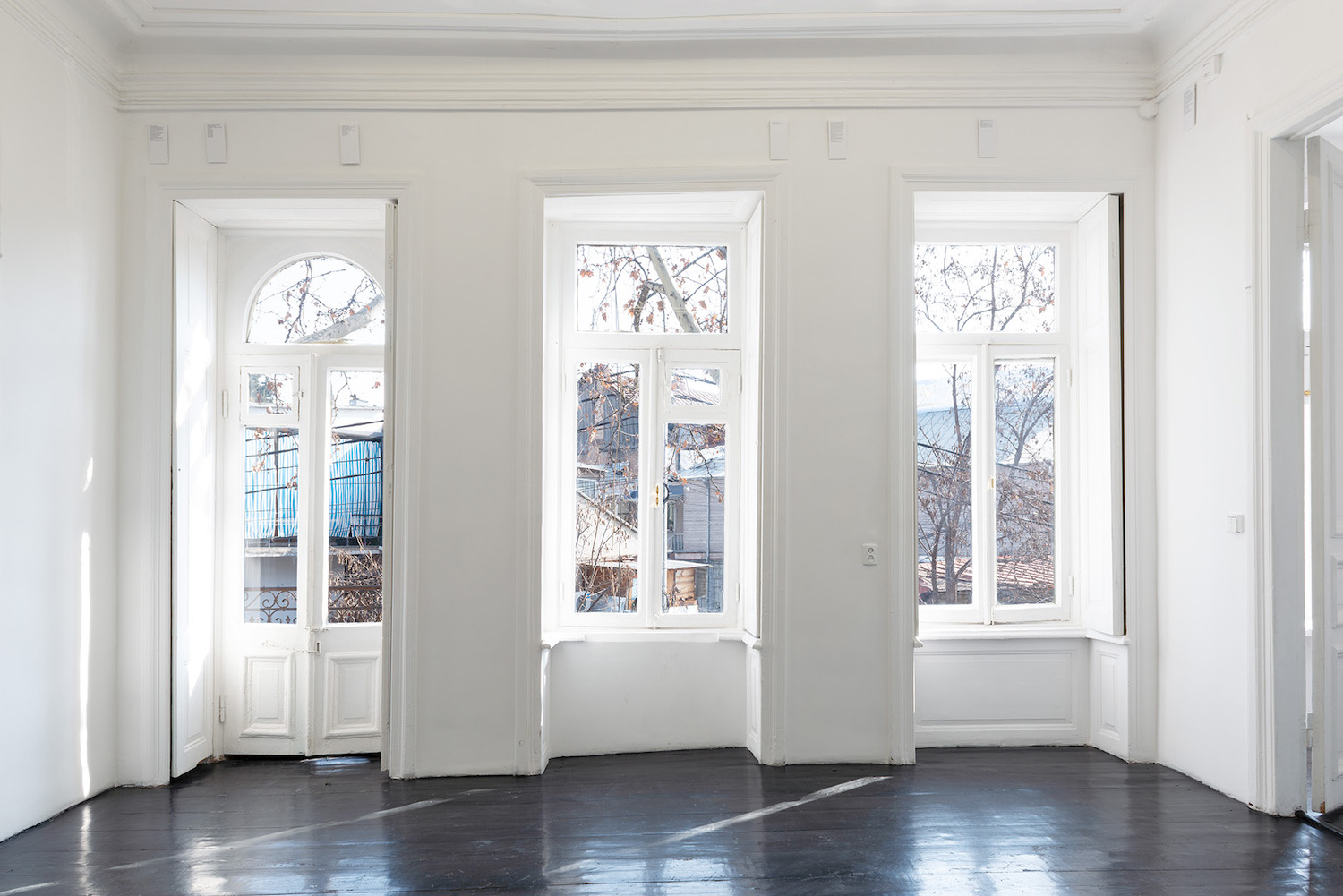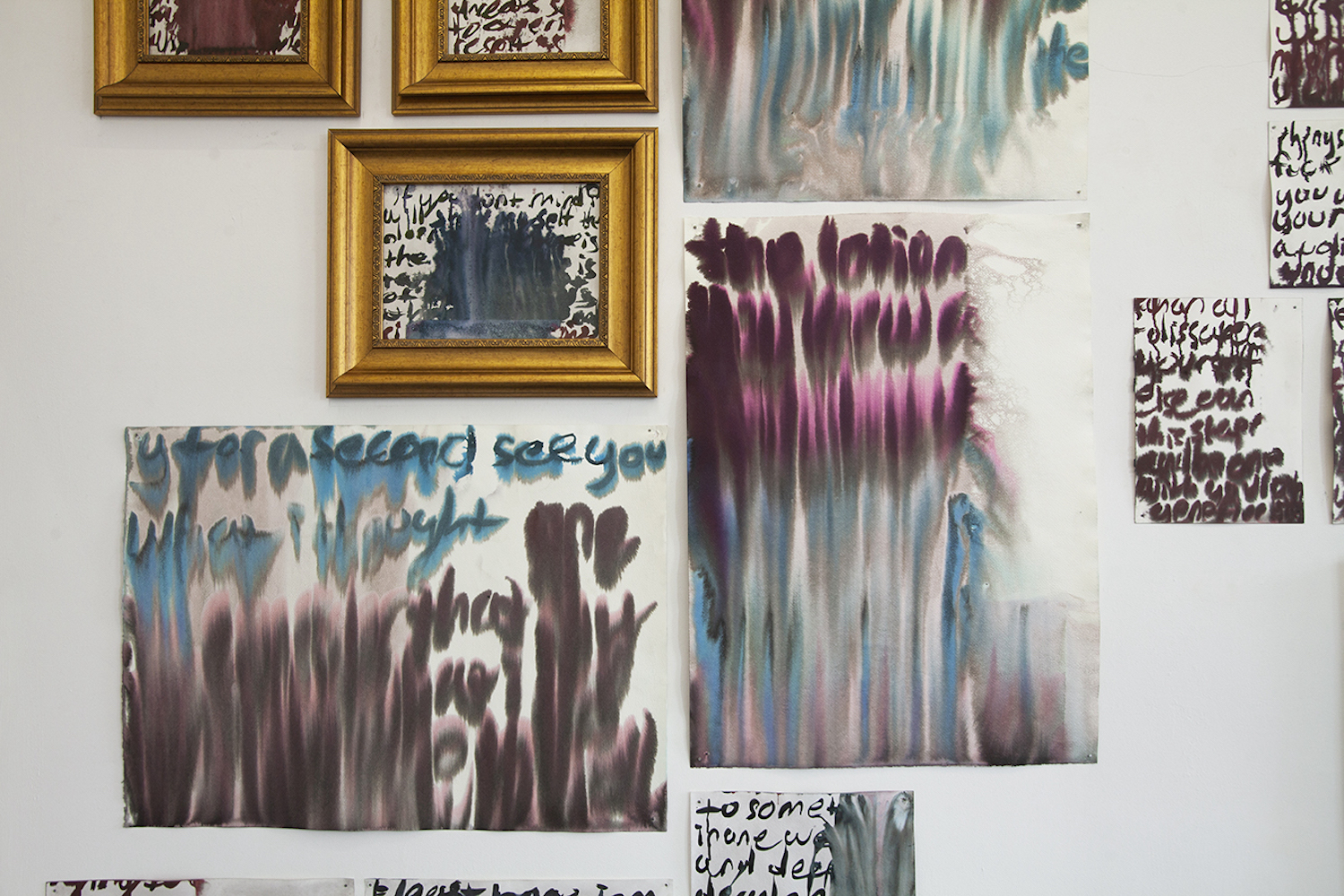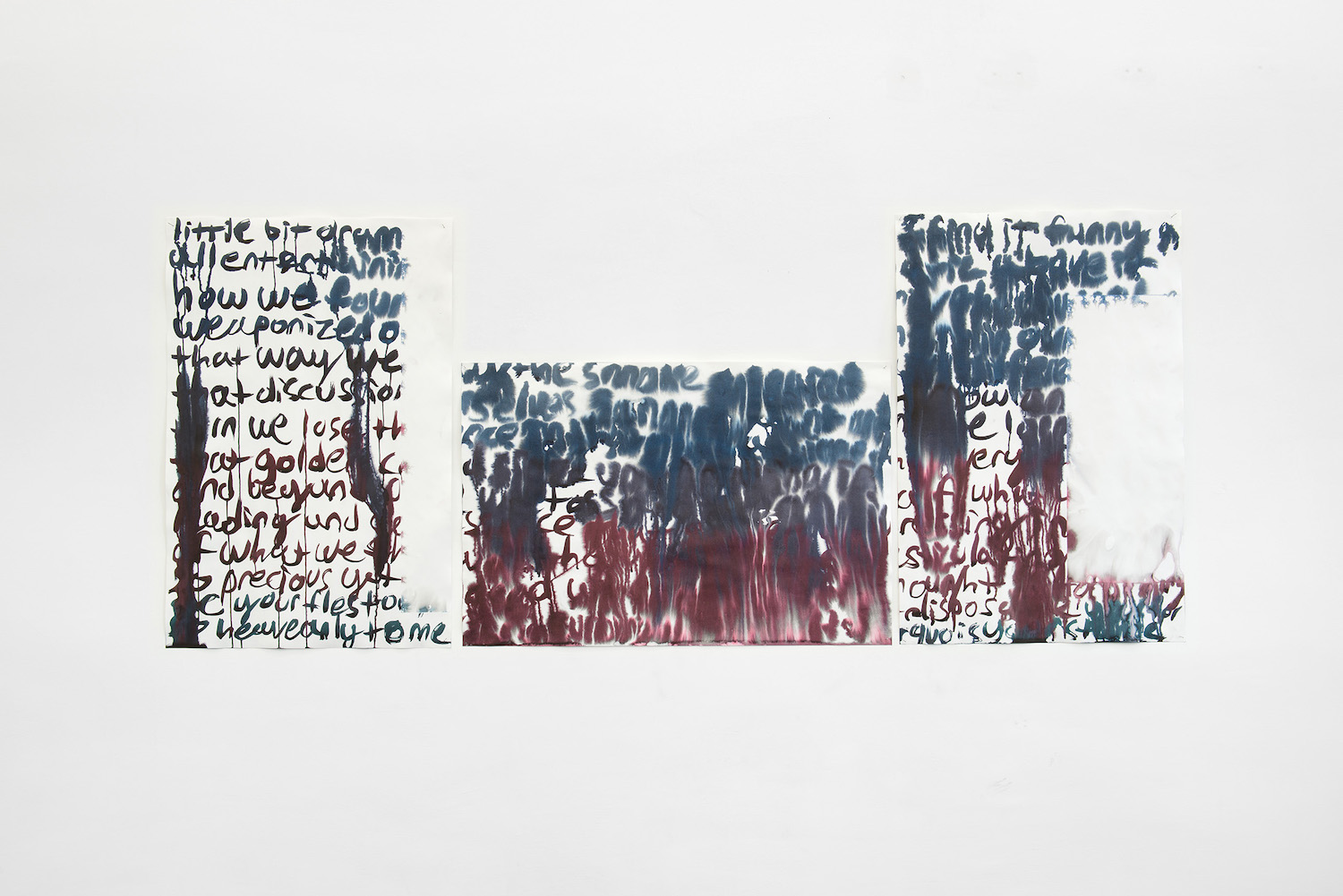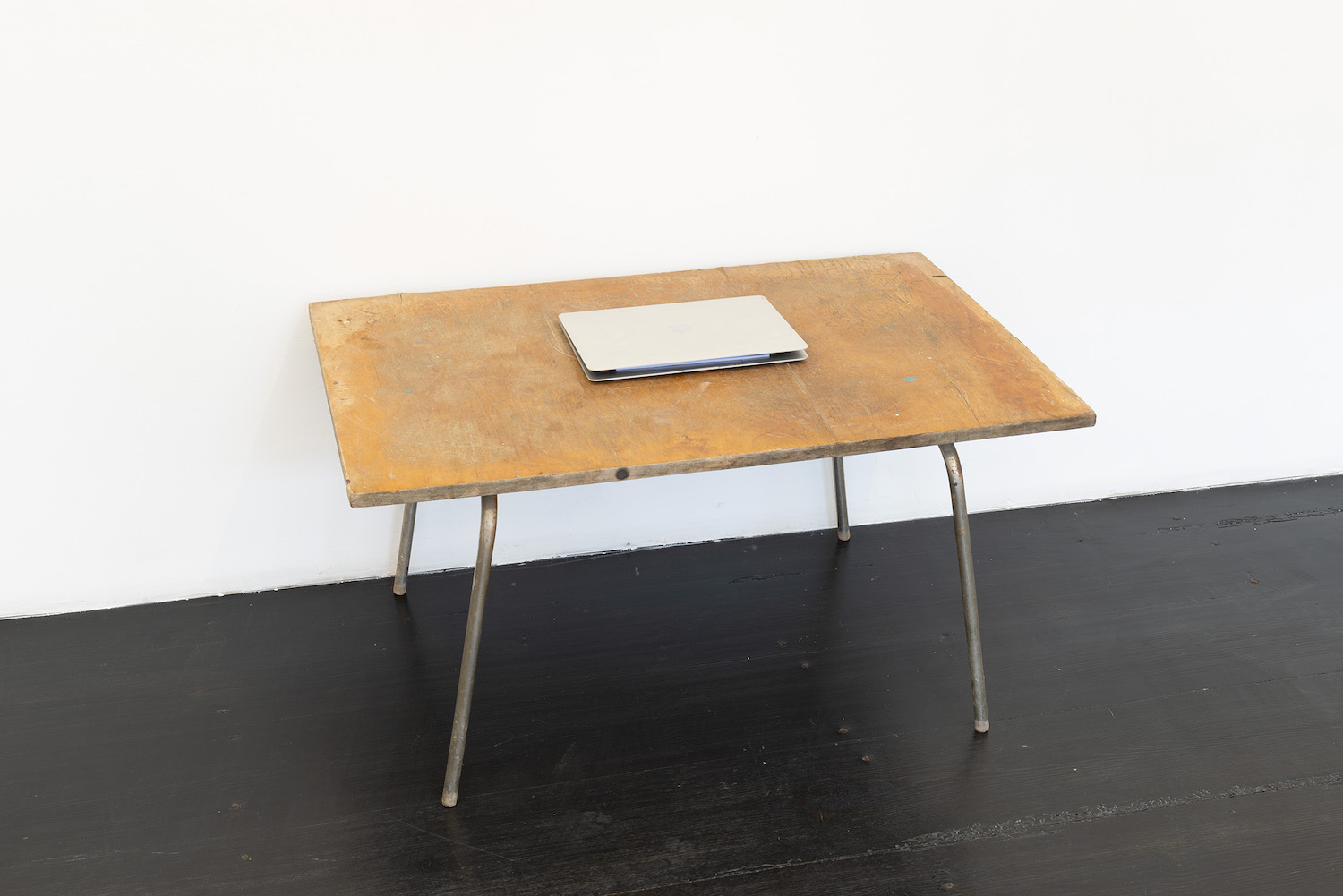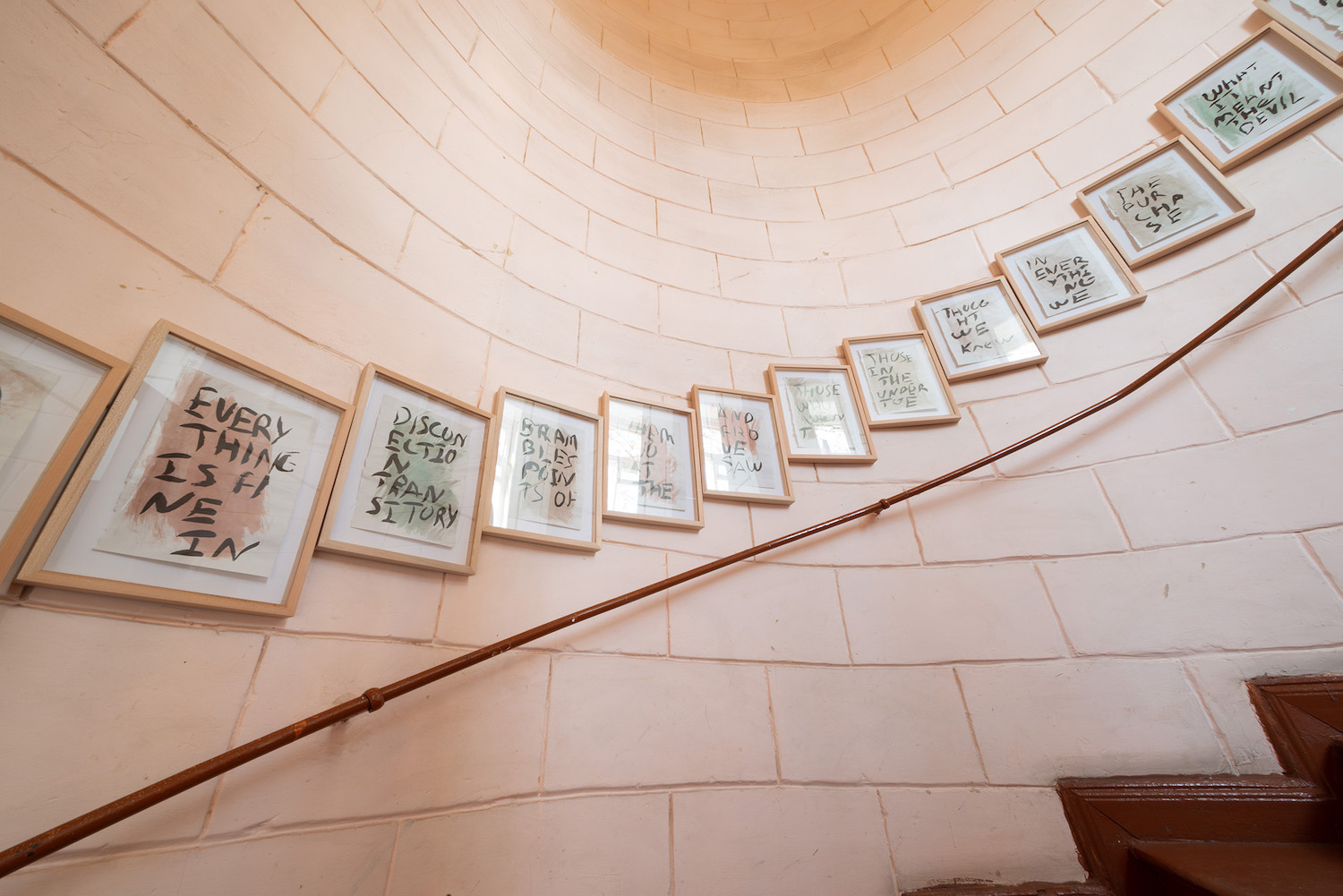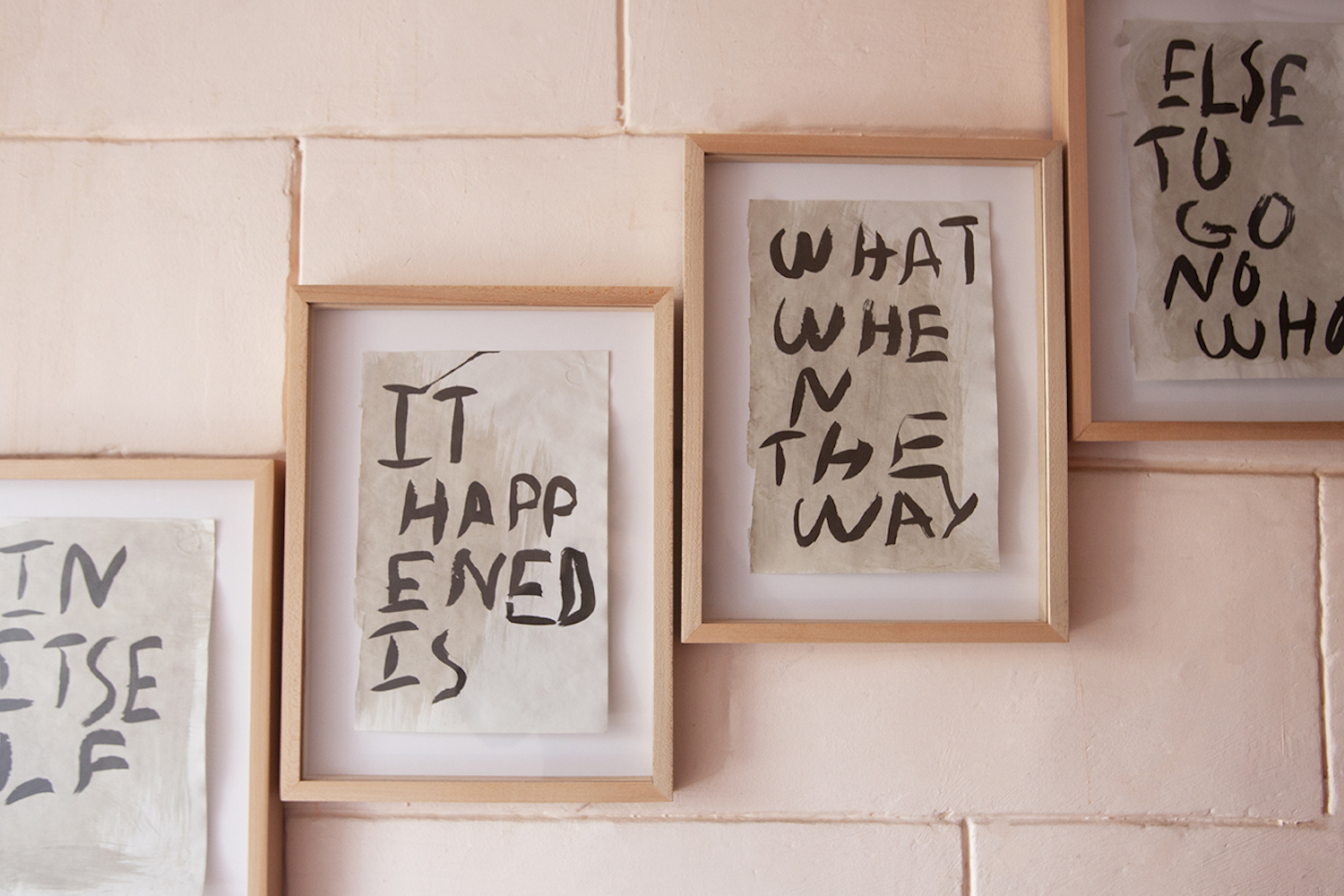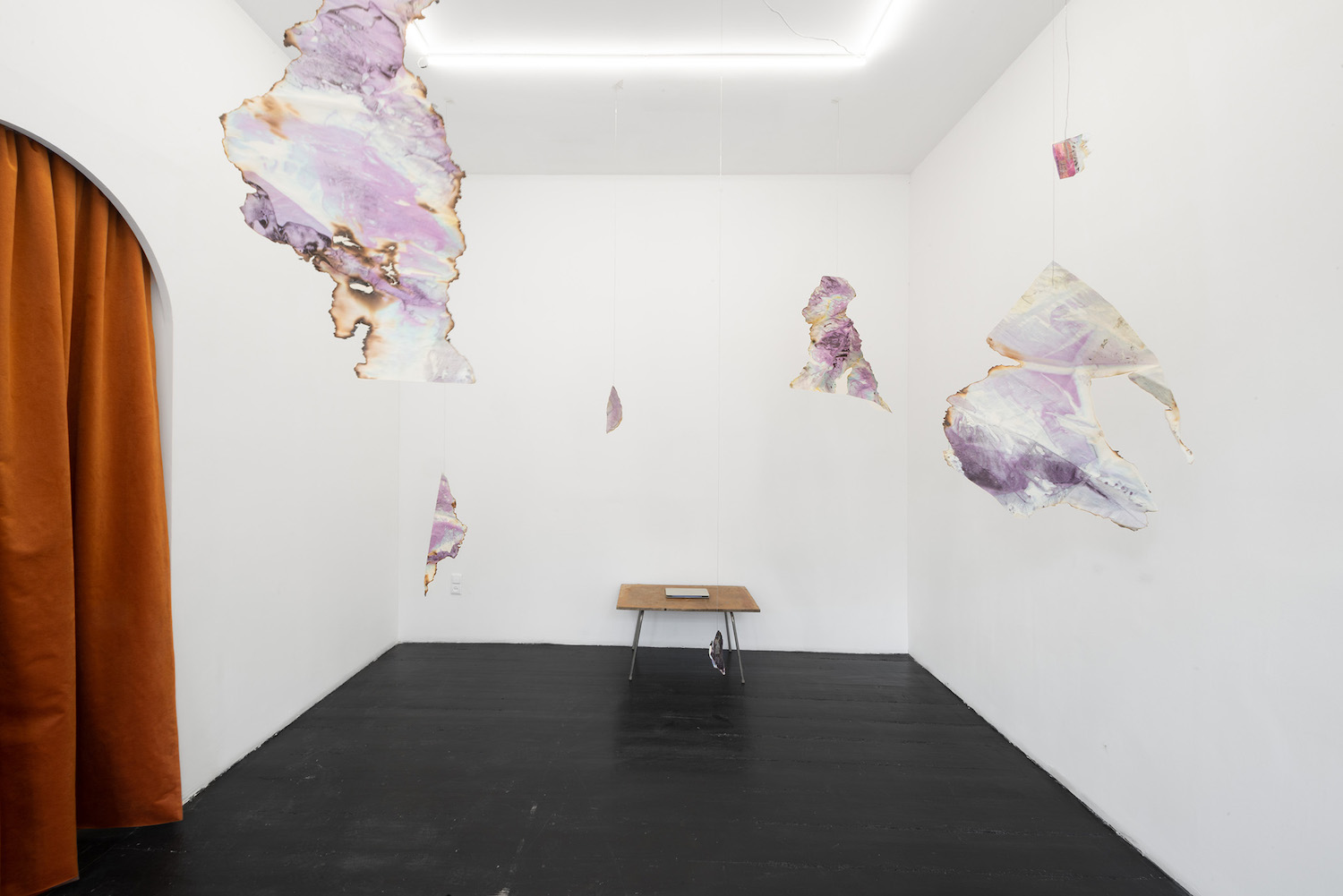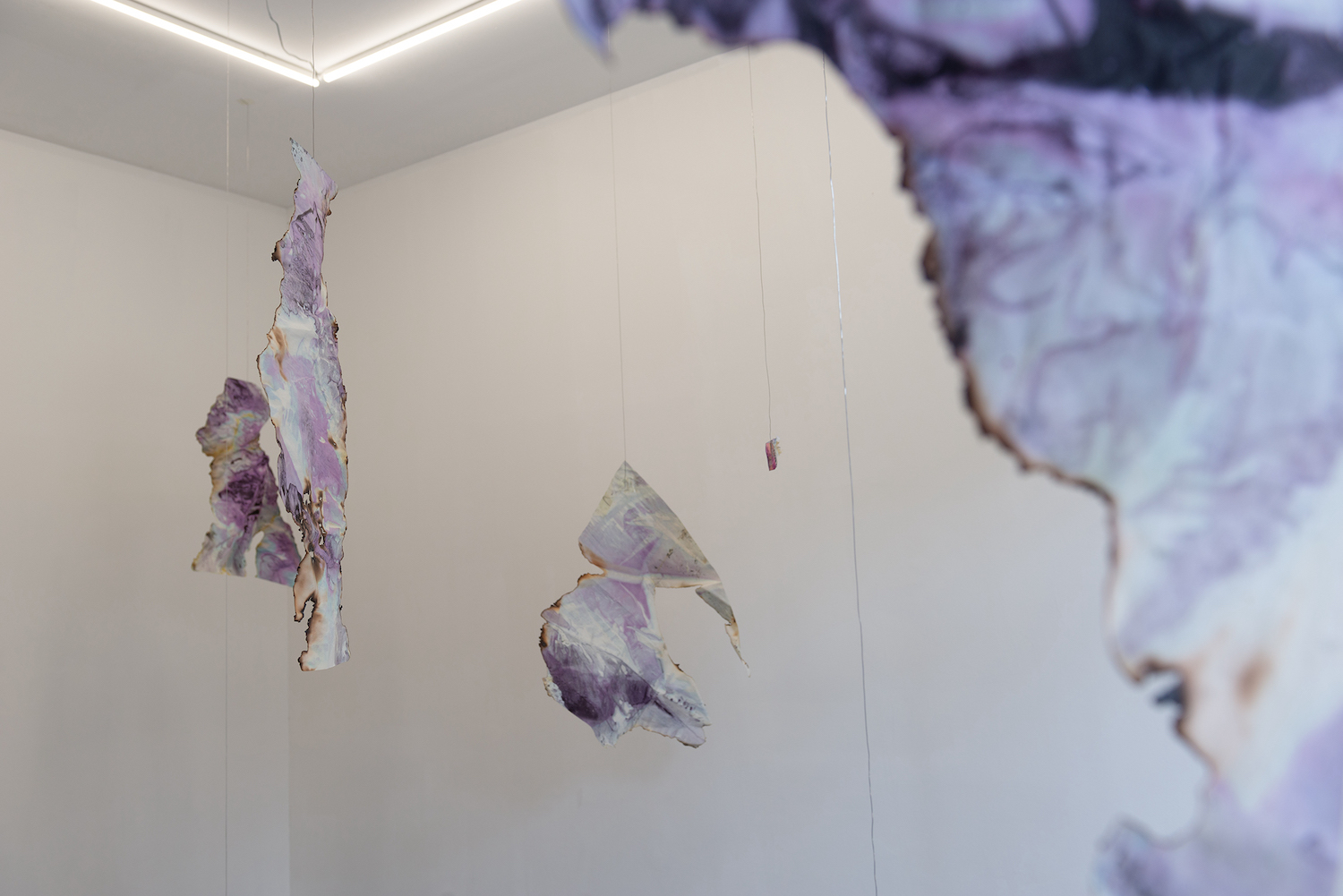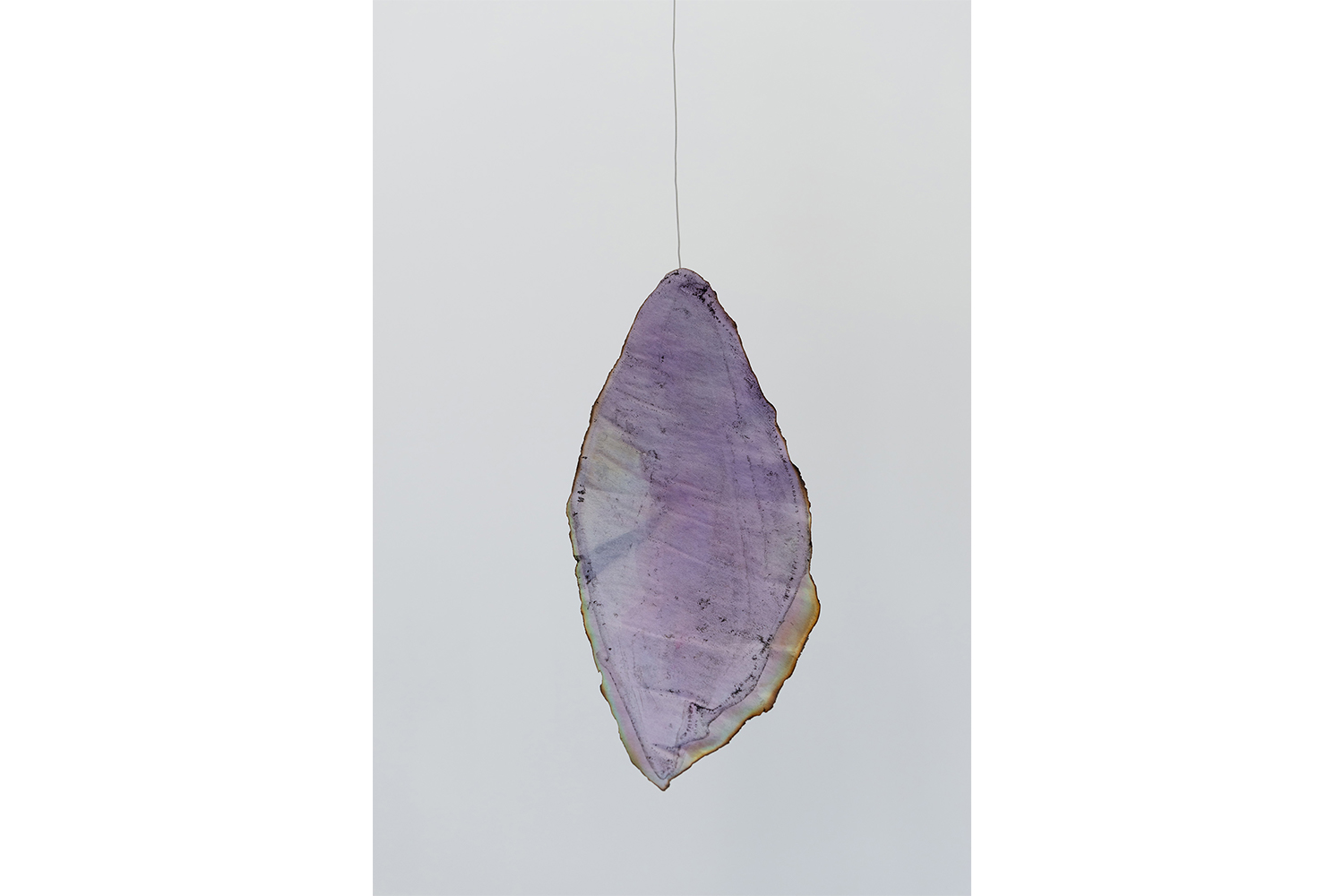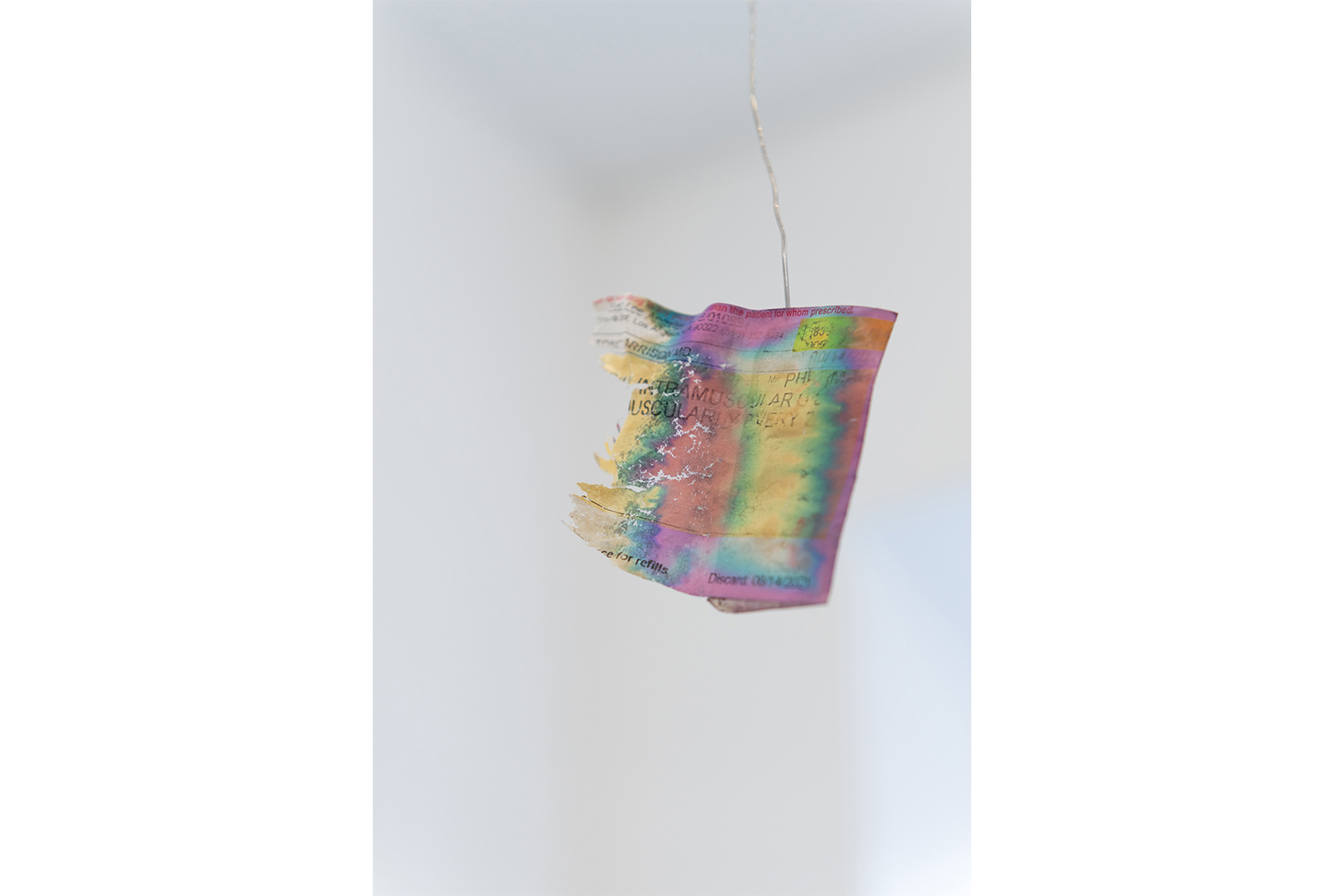A haunting liquidity permeates Ser Serpas’s first solo exhibition at LC QUEISSER in Tbilisi, Georgia. Titled “Guesthouse,” it is a culmination of three years of writing poetry. Serpas writes on her phone, at a moment’s inspiration, in bed, on trains, while waiting. Although she returns to the poems to edit them, this informal approach fosters immediacy in marking a thought. In “Guesthouse” she re-marks these poems and morphs them into runny, inky texts on paper titled “Alice (Language) Practice,” 2020/21. These pieces are made by drawing sentences with a brush on wet paper using red, pink, orange, blue, turquoise, purple, and Chinese black ink. Multiple colors lurk behind the black calligraphy ink that dominates the drawings, creating a mesmerizing space between word and image.
The drawings lead viewers up circular stairs into the first room of the gallery, where they climax in a Petersburg hanging across two corner walls. Hanging unframed as well as placed in locally sourced ornate, gold, and silver frames, these text pieces, concentrated together, create a hallucinogenic patchwork of sentences from an undisclosed narrative.
The back room is sparse save for a large table (Love Less, 2021) designed by Serpas. The heaviness of the object’s wood and metal tends to contradict the liquidity and formal precision of the paper works in the first room. However, the tight-knit community surrounding the gallery, including artists in residence at nearby arts organization Propaganda, can gather around it independent of lockdown policies.
Serpas had her poems translated into Georgian, then printed the translations as index card–sized wall texts and hung them just below the ceiling — well above reading height — around the two rooms. They wrap around and contain the exhibition like another locally sourced frame (Lighthouse, 2020).
Downstairs, in a separate two-room space, we first enter the newly opened Posta da Kona bookstore. For the opening of “Guesthouse,” Kona Books published a bilingual book of Serpas’s poems by the same title. Elegantly designed by Dan Solbach and printed locally, the pocket-size publication functions as a document of the exhibition.
Passing through the bookstore’s seductive arch and rust-colored curtain, we enter the second room and find a majestic afterthought to the exhibition. Suspended from the ceiling, leaf-like, hanging on invisible wire, are eight weightless paper sculptures stained with yellow, magenta, and cyan (“Waterworks,” 2021).
“Waterworks” are made of variously sourced paper, from Stamba Hotel stationery to used up Estrogen packaging. Serpas lit these paper pieces on fire while they were still damp from the leftover ink drippings of “Alice (Language) Practice” as well as spilled wine and various other secretions, which accounts for their organic shapes and burnt edges. They are like traces of a battle between water and fire, hanging mid-air, finished off with a spray of “Secretions Magnifiques” by Etat Libre d’Orange.
The room also holds another small wood and metal table on which lays a laptop, damaged from red wine consumed with friends around the corner. The laptop is slightly ajar and apparently contains poems printed on paper that are too intimate to share publicly.
After a fluid-phobic year, the runniness of “Alice (Language) Practice” (2020/21) and “Waterworks” (2021) communicates strong restorative potential. Although the two tables in the exhibition formally compete with this potential, they point to a different form of alleviation, one of intimacy and improvisation derived from a sense of community that the artist found while working in Georgia.

